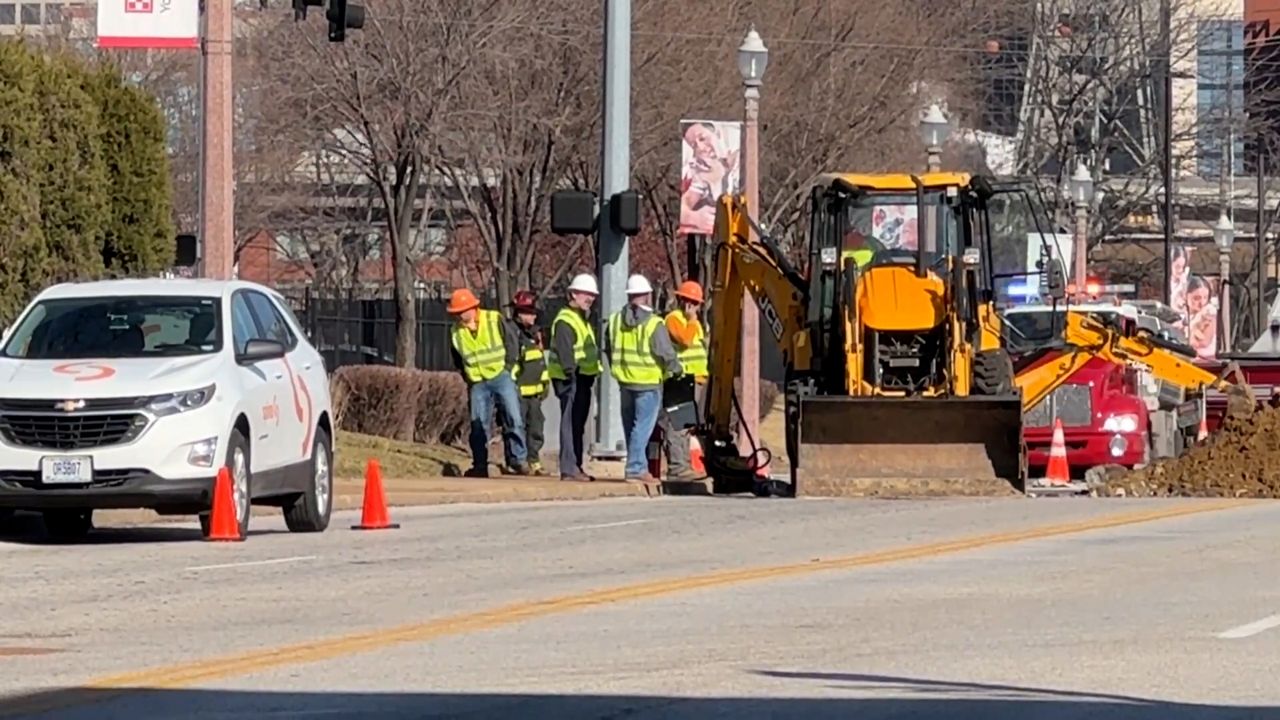ST. LOUIS — With a June 7 deadline looming before a federal program which compensates some U.S. victims of nuclear radiation expires, the last 24 hours have brought a series of developments, with the latest being that a bill that would reauthorize the Radiation Exposure Trust Fund for another two years without expanding it to include parts of Missouri, Kentucky, New Mexico, Guam and other regions, will not get a vote when the House returns next week.
"After consulting with Congresswoman Wagner, the Majority Leader and Speaker have decided not to bring the proposed RECA reauthorization to the floor next week,” a Johnson spokesperson told Spectrum news late Wednesday afternoon.
Only hours earlier, Johnson's office said it had issues bringing a bill to the floor that had already passed the Senate, sponsored by Sen. Josh Hawley, R-Mo. that would expand the program to Missouri and elsewhere.
“House Republican Leadership is committed to ensuring the federal government fulfills its existing obligations to Americans exposed to nuclear radiation. Unfortunately, the current Senate bill is estimated to cost $50-60 billion in new mandatory spending with no offsets and was supported by only 20 of 49 Republicans in the Senate,” a Johnson spokesperson told Spectrum News in a statement earlier Wednesday.
The Radiation Exposure Compensation trust fund has paid victims for medical costs dating back to the early 1990s. Hawley's legislation would extend and expand the program for five years. It passed the Senate by a 69-30 margin in March.
Johnson's office did not immediately respond to whether the turnabout means Hawley's legislation is back in play for a floor vote.
"It’s great news for Missouri that House leadership listened to my concerns and those of my constituents and pulled the Floor vote on this misguided proposal. We’re going to keep fighting for expansion of RECA so Missourians impacted by radiation get the support and compensation they deserve," Wagner said in a statement to Spectrum News Wednesday night.
"She did what nobody could," Dawn Chapman, the St. Louis County activist who has lobbied Congress on the issue and was at the Capitol with other impacted families earlier this month, said of Wagner and the latest developments Wednesday. "She moved mountains." Chapman was among those who met with Johnson's staff for the first time in person to talk about the legislation.
State Rep. Tricia Byrnes, R-Wentzville, another advocate who was at the Capitol last week said Wednesday was "a pivotal moment."
"Congresswoman Ann Wagner deserves all the credit for saving RECA today. She killed this worthless RECA extension before it even hit the floor. This would have killed the momentum behind the real RECA bill. Ann saved lives in Missouri by keeping this essential healthcare bill in play in the House," Byrnes said.
Within the past week, Hawley took to the Senate floor to criticize a measure offered by Sen. Mike Lee, R-UT which would only extend the existing program. A similar bill is in the House authored by Rep. Celeste Maloy, R-UT and is the one that will now not make it to the floor for a vote.
“As I stand here on this floor, Coldwater Creek – still poisoned. The Westlake landfill – still burning. Weldon Spring – not cleaned up. Government hasn't done anything,” argued Hawley. “I will not be party to any attempt at some halfway measure, or some short stopgap bill, or some effort to sweep this under the rug. Not anymore. The victims have waited too long,” Hawley said Thursday.
Tuesday night, Hawley said he would force procedural votes next week on any bill that would extend but not expand the program. Wednesday night, he said his bill was the "only viable option now".
A congressional source indicated earlier Wednesday there was a possibility a rare maneuver, known as a discharge petition, could be used to move the Hawley measure to floor for a House vote, but that due to House rules it would not take place before the existing program would go dark next week.
President Joe Biden told a New Mexico audience last August that he supported the concept of paying radiation victims. Last week, U.S. Energy Secretary Jennifer Granholm, who last year visited a containment site for waste stored in Weldon Spring, Mo., told the House Oversight Committee that “it is critical that the United States take responsibility for the fallout of its activities in World War II on humans. No matter where they are.”









